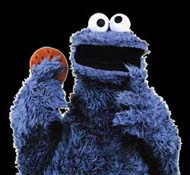SW, Chapter 5: The Proust-Benatar connection
I know, I know, you'd thought I'd given up on these little ramblings, but no, I have miles to go e'er I sleep. And sleep I do, after a few pages of M. Proust's final chapter.
I let myself get a little arrogant during "Swann in Love," because I was taking 30, 40 pages at a go, all "lalala this is so eeeeeasy!" and then: "Place Names." And here we are back at Marcel expounding on the way we connect names to memory--no, wait, on how Marcel connects names to memory, because I sure as heck don't follow the same model. When I think, for instance, "Mexico," my brain can actually recall more than just one image, but Proust insists that we all can only bring up one image, maybe two, per place name, which is... sigh. Oh, Marcel, we were getting along so well there for a while. Remember when your book had a plot? About a guy falling for a skank? 'Member that?
Okay, and while we're on the topic of Odette "Easypass" de Crecy--this guy Swann is supposed to be a man of the world, yes? A man of society, who knows just everyone in Paris? And Odette is, as is made quite clear in the final chapter, the Good Time Had By All. So how could Swann possibly not have some inkling, much earlier on than is related in the book, about his lady love's life as the Official Bicycle Seat of France? I'm saying.
But Proust isn't talking about logic by this point; he's talking about looooove, baby, and that's where he and I stop talking to each other again. Because his notion of love is so... not love at all. It's about obsession, and jealousy, and control over another person. Love is a weakness that allows you to be used by another person. Love is a contest of wills, and only the weaker winds up with their heart involved. Love... is a battlefield.
I'm hoping that, because Swann's Way is about his youth, this exceptionally immature concept of love is not the only one he can imagine, but I can't say it's my strongest hope ever. And I realize that the reason the character Marcel is being depicted as falling into the same pattern with Gilberte is to show how patterns repeat themselves, yadda yadda, but... none of the other couples in the book fares better. The lesbians? All about control as well. Maaaaybe his parents, but he really spends very little talking about his parents as a couple, so it's more a lack of bad drama, rather than an actual positive image. No, my impression is that Proust thinks of love as two-thirds Hobbesian: nasty, brutish, and long. Poor fella. He must not have done too well in that field himself. But then again, that's almost guaranteed to happen if you hold onto that sort of attitude about human relations.
I let myself get a little arrogant during "Swann in Love," because I was taking 30, 40 pages at a go, all "lalala this is so eeeeeasy!" and then: "Place Names." And here we are back at Marcel expounding on the way we connect names to memory--no, wait, on how Marcel connects names to memory, because I sure as heck don't follow the same model. When I think, for instance, "Mexico," my brain can actually recall more than just one image, but Proust insists that we all can only bring up one image, maybe two, per place name, which is... sigh. Oh, Marcel, we were getting along so well there for a while. Remember when your book had a plot? About a guy falling for a skank? 'Member that?
Okay, and while we're on the topic of Odette "Easypass" de Crecy--this guy Swann is supposed to be a man of the world, yes? A man of society, who knows just everyone in Paris? And Odette is, as is made quite clear in the final chapter, the Good Time Had By All. So how could Swann possibly not have some inkling, much earlier on than is related in the book, about his lady love's life as the Official Bicycle Seat of France? I'm saying.
But Proust isn't talking about logic by this point; he's talking about looooove, baby, and that's where he and I stop talking to each other again. Because his notion of love is so... not love at all. It's about obsession, and jealousy, and control over another person. Love is a weakness that allows you to be used by another person. Love is a contest of wills, and only the weaker winds up with their heart involved. Love... is a battlefield.
I'm hoping that, because Swann's Way is about his youth, this exceptionally immature concept of love is not the only one he can imagine, but I can't say it's my strongest hope ever. And I realize that the reason the character Marcel is being depicted as falling into the same pattern with Gilberte is to show how patterns repeat themselves, yadda yadda, but... none of the other couples in the book fares better. The lesbians? All about control as well. Maaaaybe his parents, but he really spends very little talking about his parents as a couple, so it's more a lack of bad drama, rather than an actual positive image. No, my impression is that Proust thinks of love as two-thirds Hobbesian: nasty, brutish, and long. Poor fella. He must not have done too well in that field himself. But then again, that's almost guaranteed to happen if you hold onto that sort of attitude about human relations.

